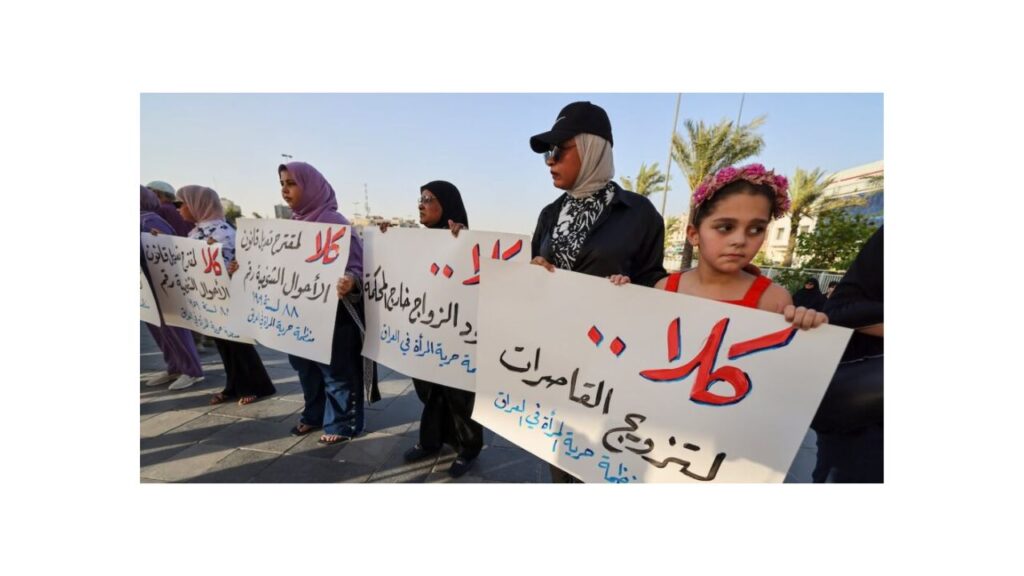The contentious bill seeks to modify the nation’s Personal Status Law, which presently establishes 18 as the minimum age for marriage.
An Iraqi parliament bill that would lower the legal age of marriage for girls to 9 years old has provoked a great deal of indignation and alarm. The contentious bill, which was presented by the Iraqi Justice Ministry, intends to change the Personal Status Law of the nation, which currently establishes 18 as the minimum age for marriage.
The bill would give people the option to decide family matters either through the civil judiciary or religious authorities. Critics worry that this will result in a reduction of rights regarding child custody, divorce, and inheritance.
The bill, if it passes, would legalize marriages for boys and girls as young as 9 and 15, respectively, raising concerns about the rise in child marriage and exploitation. Opponents contend that decades of advancement in the promotion of women’s rights and gender equality would be undermined by this regressive action.

The bill has faced strong opposition from human rights organizations, women’s groups, and civil society activists who fear dire consequences for the education, health, and general well-being of young girls. They contend that early pregnancies, higher dropout rates, and an increased risk of domestic violence are all caused by child marriage.
UNICEF, the children’s agency of the United Nations, reports that 28% of Iraqi girls are married before turning 18.
Human Rights Watch (HRW) researcher Sarah Sanbar stated, “Passing this law would show a country moving backward, not forwards.”
Adding her weight to the opposition, Amal Kabashi of the Iraq Women’s Network said that the amendment “provides huge leeway for male dominance over family issues” in a society that is already heavily conservative.
When numerous lawmakers objected, the parliament withdrew the proposed changes in late July. They reappeared in a session on August 4th, having gained the backing of influential Shia blocs that control the chamber.
The proposed modifications would be different from the laws of 1959. This law, passed following the overthrow of the Iraqi monarchy, gave the state judiciary jurisdiction over family law, taking it away from religious leaders. Though it makes no mention of other religious or sectarian communities within Iraq’s heterogeneous population, the new bill would reintroduce the option to apply religious rules, primarily from Shia and Sunni Islam.
The bill’s supporters assert that its goals are to harmonize Islamic law and shield young girls from “immoral relationships.” Opponents respond, however, that this logic is faulty and fails to take into account the harsh reality of child marriage.
The amendment would “undermine the principle of equality under Iraqi law,” according to Sanbar of HRW, by granting religious authorities control over marriage.
It additionally “could legalise the marriage of girls as young as nine years old, stealing the futures and well-being of countless girls.”
“Girls belong on the playground and in school, not in a wedding dress,” she stated.
It remains to be seen if this attempt to amend the law will be successful in the same way that multiple previous attempts have not.
